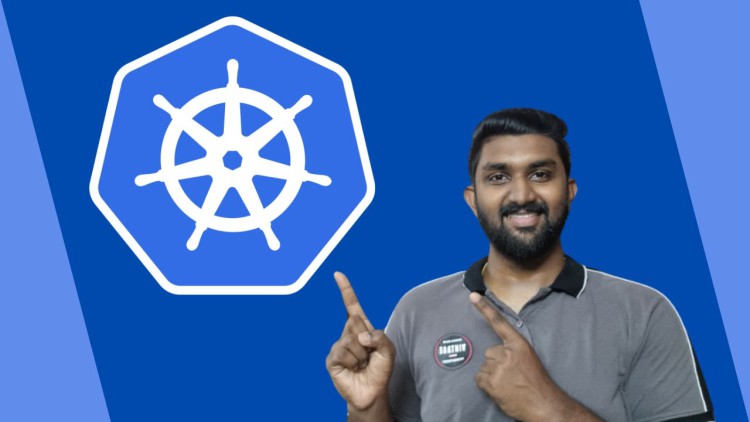
The Easiest and Ultimate Beginner’s Guide to Mastering Your Skills with Kubernetes
What you will learn
Gain good understanding of Kubernetes foundations
Setup a Kubernetes cluster
Develop Kubernetes manifest files in YAML
Setup Pods, Services and Deployments
Deploy applications on Kubernetes
Description
Welcome to the Ultimate Kubernetes for Beginners Course!
In this comprehensive course, we cover everything you need to know about Kubernetes, starting from the basics and building up. Whether you’re a beginner or have some experience with Kubernetes, this course is perfect for you.
But why should you learn Kubernetes? The answer is simple: it’s the future of cloud-native computing. Kubernetes is the de facto standard for container orchestration, and it’s being used by the biggest names in tech. Not only that but learning Kubernetes can also open up a world of job opportunities. As more and more companies adopt Kubernetes, the demand for skilled professionals in this area is only going to grow. By learning Kubernetes now, you’ll be well-positioned to take advantage of these opportunities.
And speaking of trends, Kubernetes and DevOps go hand in hand. Kubernetes is a critical component of any modern DevOps environment, and learning it can give you an edge in your career. So, what can you expect from this course? We start with the basics of Kubernetes, including what it is, how it works, and its architecture. We then move on to more advanced topics, such as deploying applications on Kubernetes, scaling applications, and managing persistent data.
But that’s not all. You’ll leave this course with a solid understanding of Kubernetes and the skills to manage and deploy containerized applications. Plus, you’ll have the confidence to tackle any Kubernetes-related job interview or project.
Enroll now and take the first step toward becoming a Kubernetes expert!
Legal Notice:
Kubernetes and the Kubernetes logo are trademarks or registered trademarks of The Linux Foundation. in the United States and/or other countries. The Linux Foundation and other parties may also have trademark rights in other terms used herein. This course is not certified, accredited, affiliated with, or endorsed by Kubernetes or The Linux Foundation.
Content
